Gen. Salami referred to Israeli officials as “Zionist offenders” and promised that Israel would pay heavily for the “innocent blood” it had shed.
Major General Hossein Salami, commander of Iran’s Islamic Revolutionary Guards Corps (IRGC), on Friday (June 7), vowed that his country would take revenge on Israel for the death of an Iranian officer—identified as Saeed Abyar, in Shahr-e-Rey, a city south of Tehran—in an airstrike near Aleppo city, in Syria, on June 3. Gen. Salami referred to Israeli officials as “Zionist offenders” and promised that Israel would pay heavily for the “innocent blood” it had shed, in a statement reported by the Fars News Agency.
In his statement, Gen. Salami praised Abyar as “a glorious martyr, commander and defender of the shrine”. According to official reports, Abyar’s death has increased the count of Iranian officers and commanders killed in a series of airstrikes blamed on Israel to 21 during the war in Gaza.
The Iranian forces are also part of what is known as the ‘Axis of Resistance’, which includes armed Palestinian groups, Houthis from Yemen and Lebanon’s Hezbollah movement. The hardline IRGC commander confirmed that the fallen soldier had been involved with Palestinian organizations. He praised the “honest and brave struggle of this dedicated officer” and his efforts against the “occupiers”.
The Tasnim News Agency reported that Nourollah Nouri, an Afghan immigrant living in Iran, was also killed in the Aleppo attack. He had served with the Fatemiyoun, a battalion of Shi’ite Afghans recruited by the Quds Force for operations in Syria.
Israel has not officially taken responsibility for these attacks, but has clearly stated that Tehran is a major instigator and the main supporter of Palestinian militants, aiming to destroy the Jewish state.
IRAN MAY REDUCE PRESENCE
The Quds Force has made it a key policy to maintain an active presence in Syria. This force is controlled by Supreme leader Ayatollah Ali Khamenei, the main authority behind Iran’s foreign policy decisions. Iran’s involvement in Syria was to support its ally, the President of Syria, Bashar al-Assad, especially when his rule was threatened by widespread protests during the ‘Arab Spring’ in 2011. As Syria fell into civil war, Iran increased its presence, saying it was responding to requests from the Syrian government.
Media reports suggest that the sudden increase in suspected Israeli attacks has caused the IRGC to reconsider its operations and reduce its large presence in Syria. Meanwhile, these strikes have sparked intense debates among critics in Iran about the costs and benefits of the country’s Syria policy.
During the war in Gaza, some Iranians have argued that, since the Syrian government is getting stronger and reclaiming more rebel-held areas, it needs less help from Iran and may even be frustrated with the presence of its forces. Because of this, the Syrian authorities are hesitant to protect their Iranian allies or share critical intelligence in the face of Israeli attacks.
ASSAD NOW ‘THE BETRAYER’
Critics in Iran have explained that the Syrian government’s return to the Arab League after years of diplomatic tensions suggests that Assad is indicating he relies less on Tehran. In mid-May, the Syrian government supported a statement by the Gulf Cooperation Council (GCC) that backed the United Arab Emirates (UAE) in its ongoing dispute with Tehran over three islands—Abu Musa, Greater Tunb and
Lesser Tunb, located in the Persian Gulf near the strategic Strait of Hormuz—that are under Iranian control.
The Iranian Foreign Ministry rejected the GCC statement, but did not mention Syria, which further angered Iranian critics and the media. One reform-supporting outlet wrote, ‘Assad’s dagger striking Iran in the back’, while another criticized the Syrian president, who was supposed to be “a friend”, but had signed “the unjustified statement” after rejoining the Arab states.
Disclaimer: The views expressed in the article are solely those of the author.
(The author of this article is a Defence, Aerospace & Political Analyst based in Bengaluru. He is also Director of ADD Engineering Components, India, Pvt. Ltd, a subsidiary of ADD Engineering GmbH, Germany)
![submenu-img]() Manisha Koirala says she has only fallen for wrong men: 'There was a red flag every time but...'
Manisha Koirala says she has only fallen for wrong men: 'There was a red flag every time but...'![submenu-img]() Watch: MS Dhoni, Hardik Pandya dance with Salman Khan on 'Jumme ki raat' at Anant-Radhika's sangeet ceremony
Watch: MS Dhoni, Hardik Pandya dance with Salman Khan on 'Jumme ki raat' at Anant-Radhika's sangeet ceremony![submenu-img]() IND vs ZIM, 2nd T20I Dream11 prediction: Fantasy cricket tips for India vs Zimbabwe
IND vs ZIM, 2nd T20I Dream11 prediction: Fantasy cricket tips for India vs Zimbabwe![submenu-img]() Bigg Boss OTT 3: Anil Kapoor 'exposes' Sana Makbul's fake friendship with Naezy, says 'aap dosti ka tamasha...'
Bigg Boss OTT 3: Anil Kapoor 'exposes' Sana Makbul's fake friendship with Naezy, says 'aap dosti ka tamasha...'![submenu-img]() Alaviaa Jaaferi slammed for hugging Justin Bieber at Anant Ambani-Radhika Merchant's sangeet: 'He was so uncomfortable'
Alaviaa Jaaferi slammed for hugging Justin Bieber at Anant Ambani-Radhika Merchant's sangeet: 'He was so uncomfortable'![submenu-img]() Meet IAS officer, who did BTech, MBA, MA, comes from a family of civil servants, cracked UPSC exam, secured AIR...
Meet IAS officer, who did BTech, MBA, MA, comes from a family of civil servants, cracked UPSC exam, secured AIR...![submenu-img]() Meet Indian genius who cracked ITT-JEE, NEET entrance exam but did not take admission due to...
Meet Indian genius who cracked ITT-JEE, NEET entrance exam but did not take admission due to...![submenu-img]() NEET UG 2024 counselling postponed until further notice amid paper leak row: Report
NEET UG 2024 counselling postponed until further notice amid paper leak row: Report![submenu-img]() FMGE June 2024: Exam to be held today, NBEMS issues exam-day instructions
FMGE June 2024: Exam to be held today, NBEMS issues exam-day instructions![submenu-img]() Meet IAS officer, who fought against corruption, was shot six times, lost an eye, he is...
Meet IAS officer, who fought against corruption, was shot six times, lost an eye, he is...![submenu-img]() Hathras Stampede Case: STF Arrests Bhole Baba's Servant Ramladait
Hathras Stampede Case: STF Arrests Bhole Baba's Servant Ramladait![submenu-img]() BSP Tamil Nadu Chief K Armstrong Hacked To Death: 8 Suspects Arrested In Chennai
BSP Tamil Nadu Chief K Armstrong Hacked To Death: 8 Suspects Arrested In Chennai![submenu-img]() Days After Hathras Stampede Tragedy, An On-Camera Statement From Bhole Baba, Says 'Deeply Saddened…'
Days After Hathras Stampede Tragedy, An On-Camera Statement From Bhole Baba, Says 'Deeply Saddened…'![submenu-img]() UK PM Rishi Sunak Resigns, Concedes Defeat To Keir Starmer In UK Polls As Labour Wins Over 300 Seats
UK PM Rishi Sunak Resigns, Concedes Defeat To Keir Starmer In UK Polls As Labour Wins Over 300 Seats![submenu-img]() Rahul Gandhi Meets The Victims Of Hathras Stampede, Assures Full Support From Congress
Rahul Gandhi Meets The Victims Of Hathras Stampede, Assures Full Support From Congress![submenu-img]() DNA Verified: Did Kangana Ranaut party with gangster Abu Salem? Actress reveals who's with her in viral photo
DNA Verified: Did Kangana Ranaut party with gangster Abu Salem? Actress reveals who's with her in viral photo![submenu-img]() DNA Verified: New Delhi Railway Station to be closed for 4 years? Know the truth here
DNA Verified: New Delhi Railway Station to be closed for 4 years? Know the truth here![submenu-img]() DNA Verified: Did RSS chief Mohan Bhagwat praise Congress during Lok Sabha Elections 2024? Know the truth here
DNA Verified: Did RSS chief Mohan Bhagwat praise Congress during Lok Sabha Elections 2024? Know the truth here![submenu-img]() DNA Verified: Is CAA an anti-Muslim law? Centre terms news report as 'misleading'
DNA Verified: Is CAA an anti-Muslim law? Centre terms news report as 'misleading'![submenu-img]() DNA Verified: Lok Sabha Elections 2024 to be held on April 19? Know truth behind viral message
DNA Verified: Lok Sabha Elections 2024 to be held on April 19? Know truth behind viral message![submenu-img]() Streaming This Week: Mirzapur season 3, Srikanth, Garudan, latest OTT releases to binge-watch
Streaming This Week: Mirzapur season 3, Srikanth, Garudan, latest OTT releases to binge-watch![submenu-img]() Remember Parzaan Dastur? Cute Sikh kid from Shah Rukh Khan's Kuch Kuch Hota Hai, 'Jalebi boy', who now works as...
Remember Parzaan Dastur? Cute Sikh kid from Shah Rukh Khan's Kuch Kuch Hota Hai, 'Jalebi boy', who now works as...![submenu-img]() Meet Andy Long, Kalki 2898 AD's action director, who has worked with Ajay Devgn, Vidyut Jammwal; he is Jackie Chan's...
Meet Andy Long, Kalki 2898 AD's action director, who has worked with Ajay Devgn, Vidyut Jammwal; he is Jackie Chan's...![submenu-img]() Kamal Haasan's Indian 2 gets U/A certificate, CBFC asks these 5 changes, including replacement of...
Kamal Haasan's Indian 2 gets U/A certificate, CBFC asks these 5 changes, including replacement of...![submenu-img]() In pics: Team India's T20 World Cup victory parade in Mumbai
In pics: Team India's T20 World Cup victory parade in Mumbai![submenu-img]() Hathras stampede: Main accused Devprakash Madhukar sent to 14-day judicial custody, police say he was...
Hathras stampede: Main accused Devprakash Madhukar sent to 14-day judicial custody, police say he was...![submenu-img]() PM Modi speaks with new UK PM Starmer, invites him to India, agree to work for early conclusion of...
PM Modi speaks with new UK PM Starmer, invites him to India, agree to work for early conclusion of...![submenu-img]() Muharram 2024: Date, history, significance of the Islamic New Year
Muharram 2024: Date, history, significance of the Islamic New Year![submenu-img]() Gujarat: Six-storey building collapses in Surat, many feared trapped
Gujarat: Six-storey building collapses in Surat, many feared trapped![submenu-img]() Anant Ambani-Radhika Merchant wedding: Mumbai police issues traffic restrictions; key routes to avoid
Anant Ambani-Radhika Merchant wedding: Mumbai police issues traffic restrictions; key routes to avoid![submenu-img]() Lok Sabha Speaker's Election: What does the Constitution say?
Lok Sabha Speaker's Election: What does the Constitution say?![submenu-img]() Explained: Why is Kerala demanding to change its name to Keralam?
Explained: Why is Kerala demanding to change its name to Keralam?![submenu-img]() DNA Explainer: What is Kafala system that is prevalent in gulf countries? Why is it considered extremely brutal?
DNA Explainer: What is Kafala system that is prevalent in gulf countries? Why is it considered extremely brutal? ![submenu-img]() Lok Sabha Elections 2024: What are exit polls? When and how are they conducted?
Lok Sabha Elections 2024: What are exit polls? When and how are they conducted?![submenu-img]() DNA Explainer: Why was Iranian president Ebrahim Raisi seen as possible successor to Ayatollah Khamenei?
DNA Explainer: Why was Iranian president Ebrahim Raisi seen as possible successor to Ayatollah Khamenei?![submenu-img]() Manisha Koirala says she has only fallen for wrong men: 'There was a red flag every time but...'
Manisha Koirala says she has only fallen for wrong men: 'There was a red flag every time but...'![submenu-img]() Bigg Boss OTT 3: Anil Kapoor 'exposes' Sana Makbul's fake friendship with Naezy, says 'aap dosti ka tamasha...'
Bigg Boss OTT 3: Anil Kapoor 'exposes' Sana Makbul's fake friendship with Naezy, says 'aap dosti ka tamasha...'![submenu-img]() Alaviaa Jaaferi slammed for hugging Justin Bieber at Anant Ambani-Radhika Merchant's sangeet: 'He was so uncomfortable'
Alaviaa Jaaferi slammed for hugging Justin Bieber at Anant Ambani-Radhika Merchant's sangeet: 'He was so uncomfortable'![submenu-img]() Meet star kid whose father sold property, mother sold jewellery, was bullied in childhood, is now worth Rs 1800 crore
Meet star kid whose father sold property, mother sold jewellery, was bullied in childhood, is now worth Rs 1800 crore![submenu-img]() Ryan Reynolds wants to work with this 'amazing' Bollywood star, tells Hugh Jackman 'he will make you look like...'
Ryan Reynolds wants to work with this 'amazing' Bollywood star, tells Hugh Jackman 'he will make you look like...'![submenu-img]() World's largest elevator, lotus ballroom: Inside details of grand venue of Anant Ambani-Radhika wedding
World's largest elevator, lotus ballroom: Inside details of grand venue of Anant Ambani-Radhika wedding![submenu-img]() Viral video: Woman tries to pose with a tiger, what happens next will shock you
Viral video: Woman tries to pose with a tiger, what happens next will shock you![submenu-img]() In pics: Isha Ambani creates fashion history, wears first ever custom Schiaparelli saree to Anant-Radhika's sangeet
In pics: Isha Ambani creates fashion history, wears first ever custom Schiaparelli saree to Anant-Radhika's sangeet![submenu-img]() Man uses alligator to open beer can in viral video, internet is shocked
Man uses alligator to open beer can in viral video, internet is shocked![submenu-img]() Snake bites man in Bihar, he bites it back twice, guess who survived
Snake bites man in Bihar, he bites it back twice, guess who survived































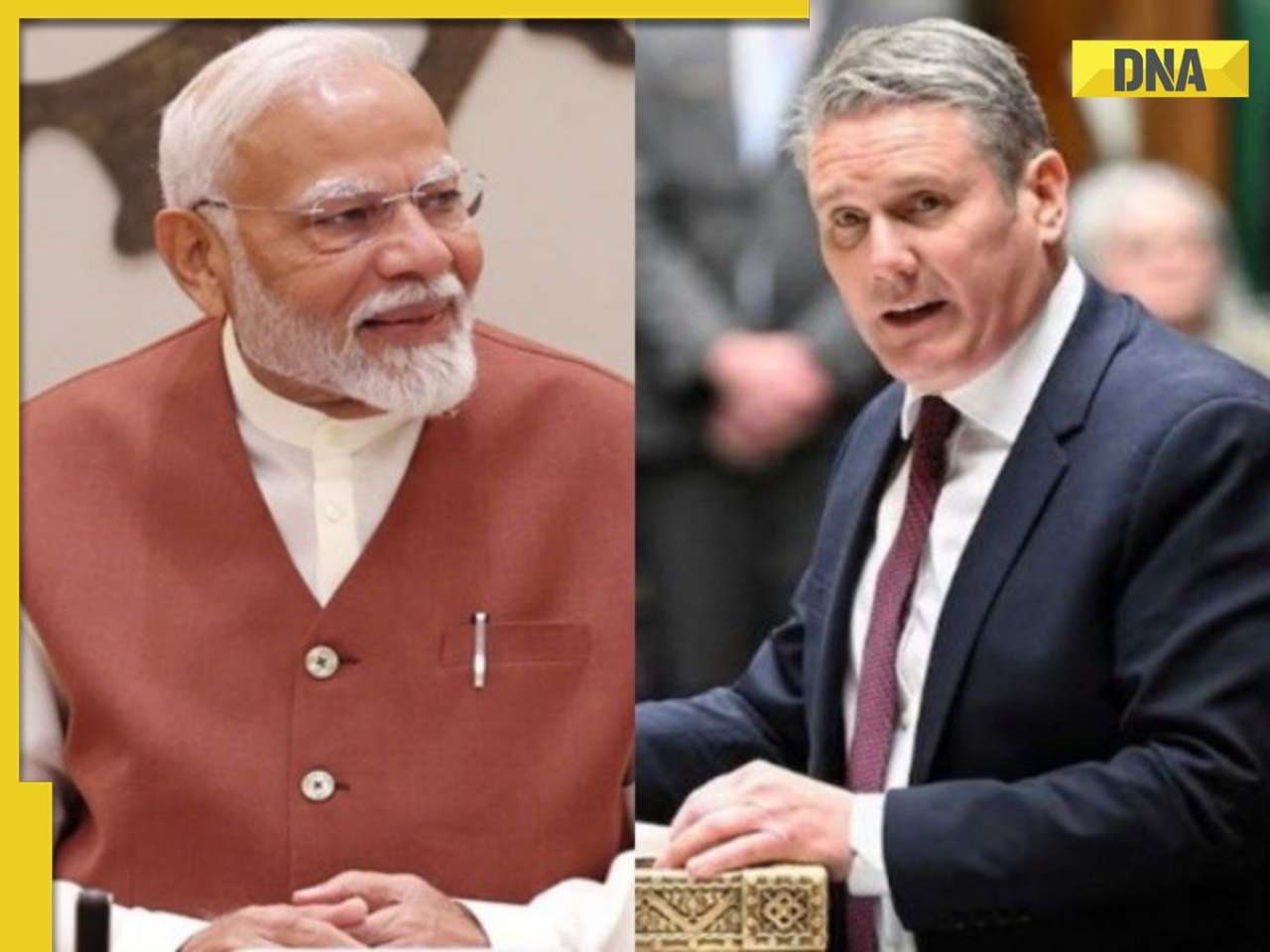

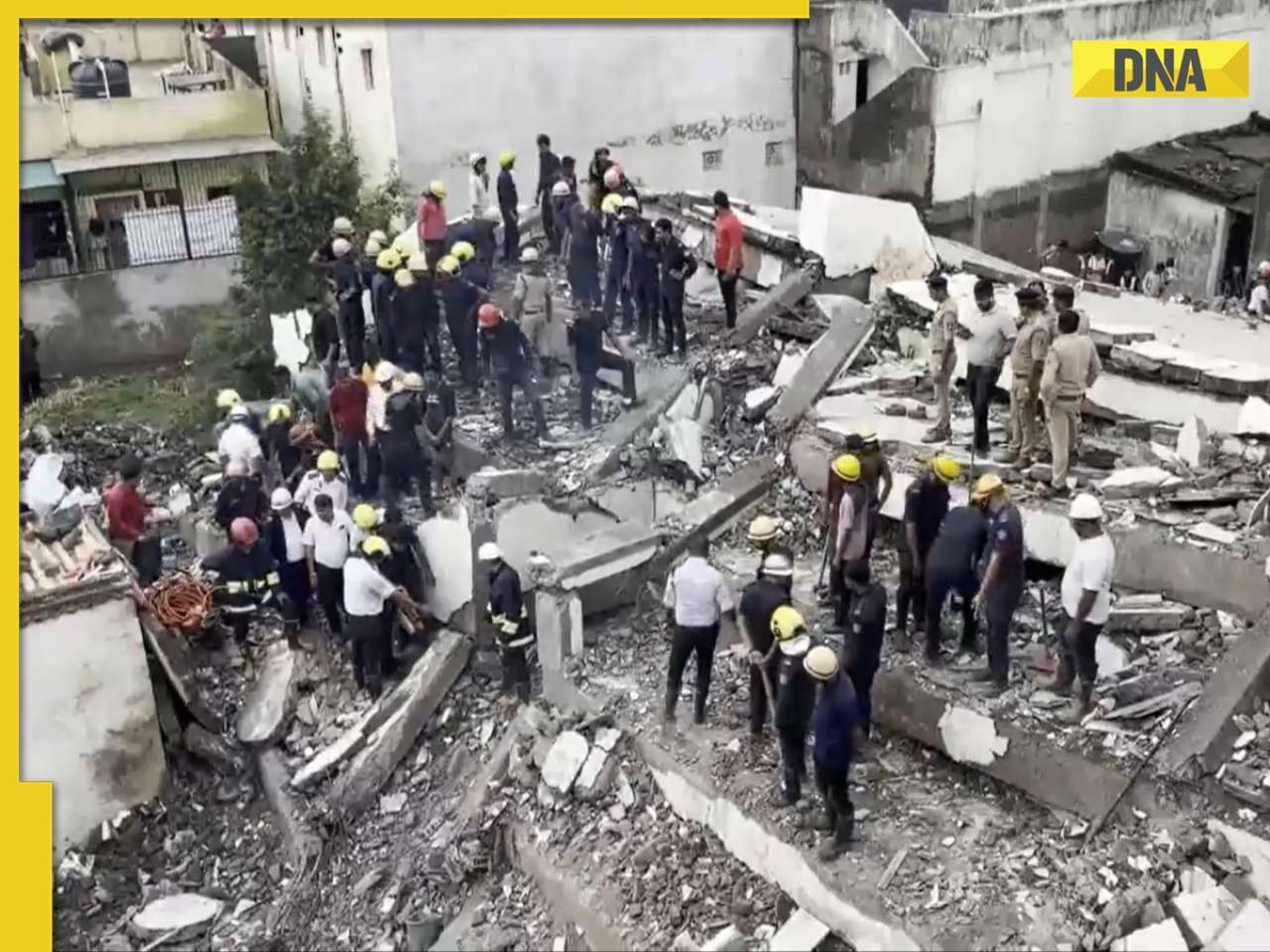

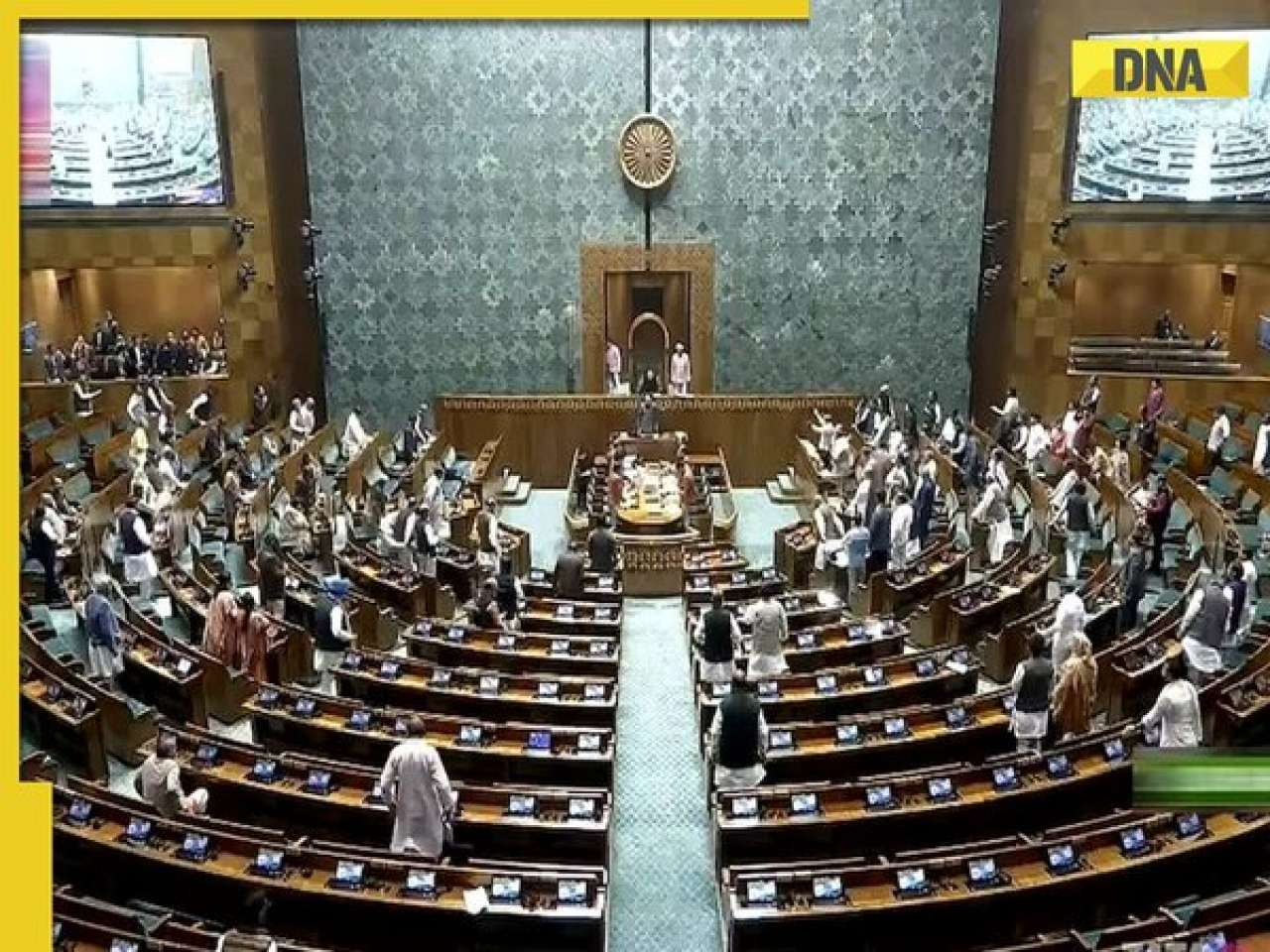
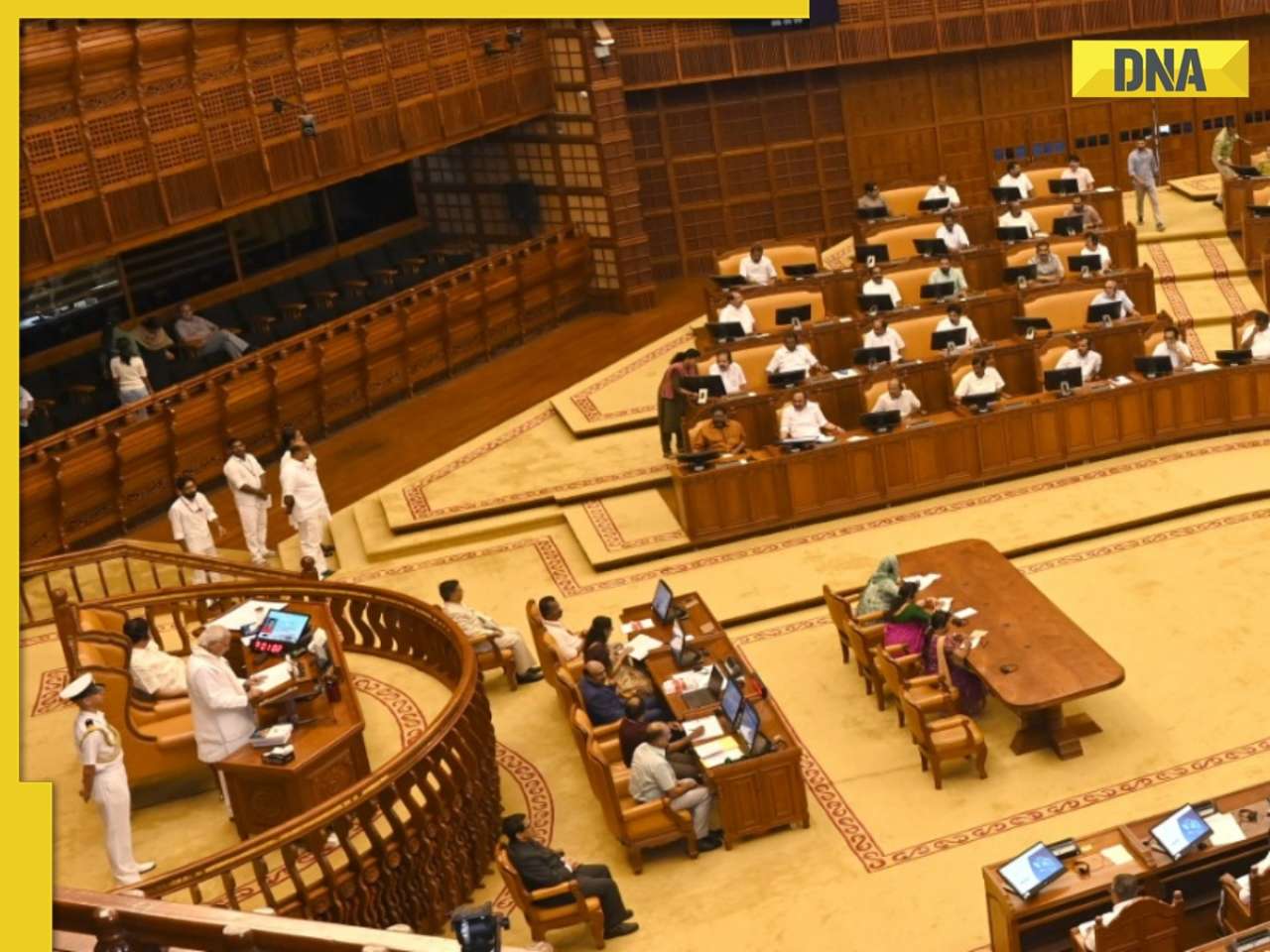











)






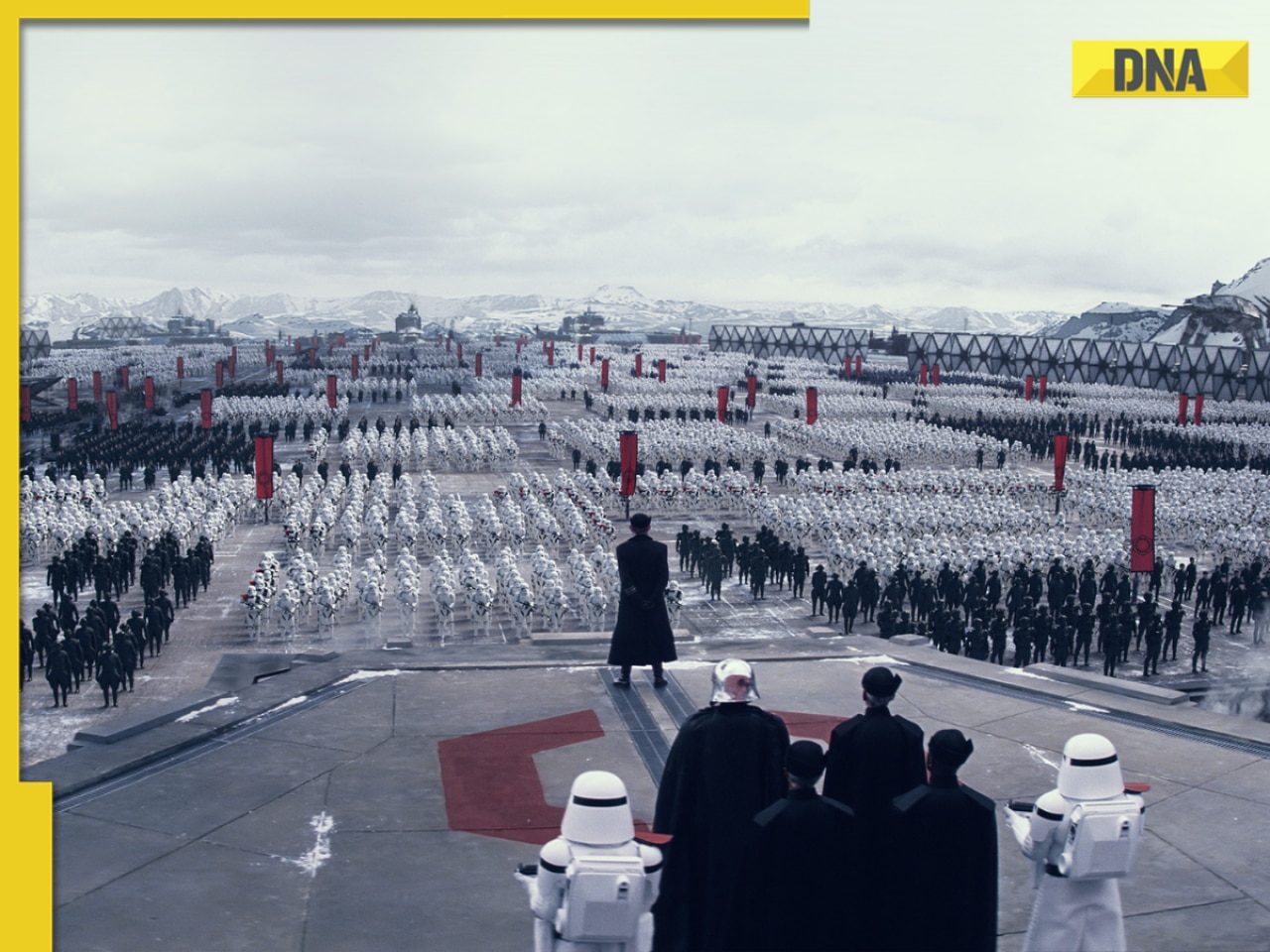



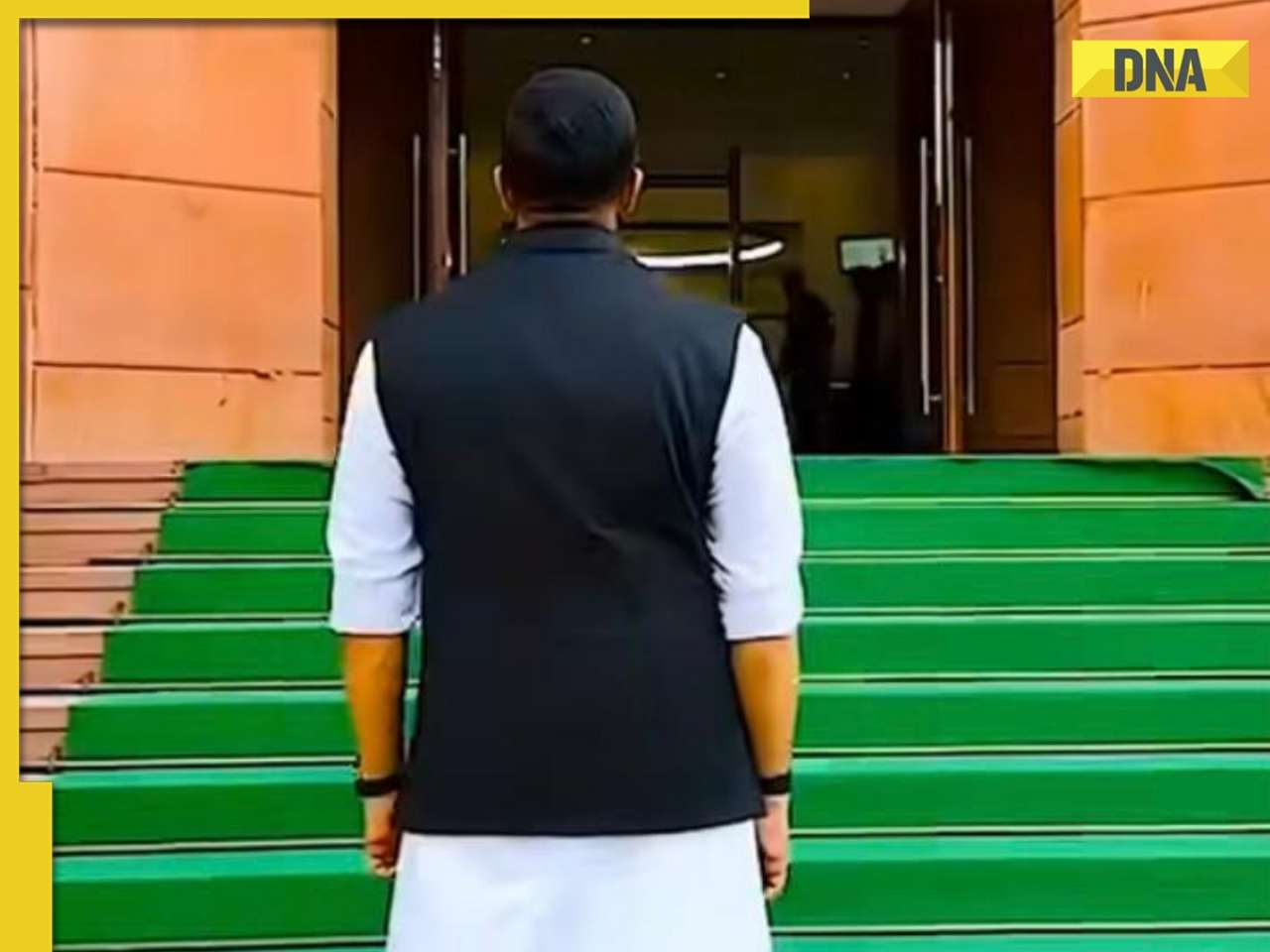






)
)
)
)
)
)